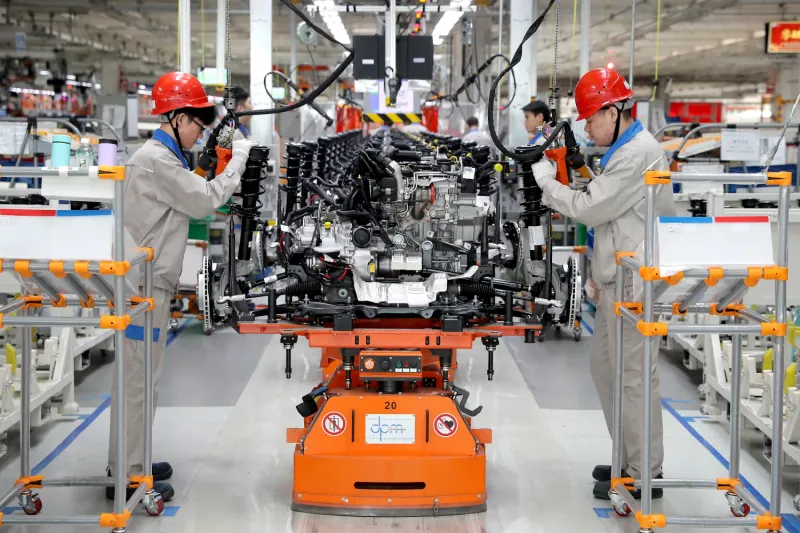America's Tech Industry in Peril: The Implications of Inda's Takeover
India isn't an ally so why are we surrendering our Tech Industry to them? What are the future implications of this mistake? Once India becomes wealthy, will they turn against America, akin to China's behavior after benefiting from US manufacturing?


A Repeat of the China Mistake?
As the United States faces increasing competition on the global stage, it is essential to scrutinize the strategic implications of outsourcing critical sectors of the economy, particularly technology jobs, to countries that might not align with American interests. India, unlike traditional allies, presents unique risks due to its geopolitical stance and growing capabilities in the IT sector.

China's Manufacturing Dominance: A Lesson Ignored
The American experience with China should serve as a cautionary tale. Over the past few decades, the U.S. outsourced a significant portion of its manufacturing to China, leading to an economic imbalance and a strategic vulnerability. China's rapid rise to economic and military superpower status has been partly fueled by this shift, and the consequences are evident in the current geopolitical tensions. Similarly, outsourcing IT jobs to India could pave the way for another rival power to gain undue influence over the American economy.

India: The Next Asian Superpower?
India is on a trajectory to become a significant global player, potentially rivaling the United States. With a burgeoning economy and a growing technological sector, India is poised to exert substantial influence. Unlike China, India's ascent in the global arena has been marked by its strong IT sector. This dominance in technology presents a double-edged sword for the U.S.

Geopolitical Alignment and Strategic Risks
India's foreign policy and geopolitical alignments present significant concerns. Historically, India has maintained a closer relationship with Russia, a key adversary of the United States. India's actions on the global stage often align more with its own regional interests rather than those of the U.S. For instance, India's neutral stance during various international conflicts has sometimes been at odds with American positions. This divergence in strategic interests raises questions about the wisdom of relying heavily on India for critical tech jobs.

The Tech Job Market: An Indian Stronghold
Today, the American tech job market is increasingly dominated by Indian professionals. While this has driven down costs for American companies, it has also created a dependency on a workforce that may not always align with U.S. strategic interests. The dominance of Indian nationals in the tech sector means that many American job seekers find it challenging to secure positions without interacting with Indian recruiters or managers.
Illegal Immigration and Economic Implications
A growing concern is the illegal immigration of Indian nationals to the United States. India is now the third-largest source of illegal immigrants in the U.S. This influx not only strains the American immigration system but also introduces additional risks. The presence of a large population of illegal immigrants from a country that might one day be a geopolitical adversary is a cause for concern. This dynamic can create socio-economic challenges and potentially lead to a workforce that operates outside the legal and regulatory frameworks of the U.S.

The Future of America's Economy and Security
The strategic implications of outsourcing tech jobs to India are profound. If the U.S. continues on this path, it risks repeating the mistakes made with China. The American economy could become overly reliant on an external workforce that operates under a different set of national interests. Moreover, as India grows in power and influence, the U.S. might find itself competing with yet another Asian superpower on the global stage.
Conclusion: A Call to Rethink Strategy
America must reconsider its approach to outsourcing and the strategic distribution of its job market. Ensuring that critical sectors like technology remain under American control is essential for maintaining national security and economic stability. By learning from past mistakes with China and taking proactive measures, the U.S. can safeguard its future against the potential risks posed by India's growing dominance in the IT sector. The time to act is now, before it is too late.






